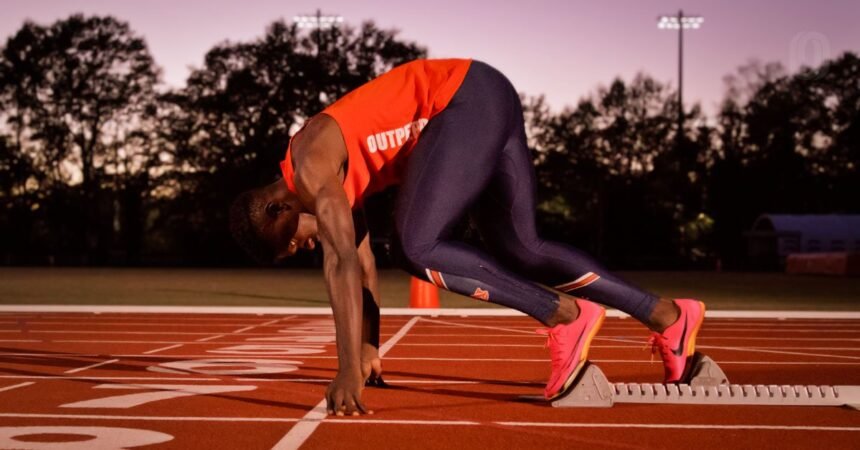Sport in the UK is more than just a pastime; it is a social glue that brings people together, whether on a muddy football pitch, a cricket green, a hockey field or a rugby ground. Amateur athletes form the heart of this culture, committing their weekends and evenings to training, competing, and enjoying the thrill of the game. Yet the excitement of stepping onto the field can sometimes mask the realities that come with playing sport at any level. Amateur athletes may not have access to the resources enjoyed by professionals, but there are many things that they can do to prepare themselves. Knowing what to expect and how to look after both body and mind is key to ensuring a long and enjoyable sporting experience.
Preparing the Body Before Play
Preparation is the first step for anyone planning to compete, regardless of the sport or the level. For amateurs who often juggle busy schedules, warm-ups and fitness work can easily be overlooked, yet they are fundamental in reducing the risk of injury. A proper warm-up increases blood flow to the muscles, improves flexibility and ensures that joints are ready for the strain of competition. Skipping this step can leave players vulnerable to muscle tears, sprains, or strains that not only disrupt the game but can affect everyday life away from the sport.
Training is not only about the skills directly linked to a sport but also about building strength and conditioning. Core stability, endurance, and flexibility all contribute to improved performance. Amateur athletes may not spend hours in a gym, but consistent training, even in shorter sessions, can make a real difference. Small adjustments, like regular stretching or maintaining a routine of light exercise on non-game days, can help sustain fitness and prevent unnecessary injuries.
Nutrition plays a vital role in this preparation. Amateur players will not follow the strict diets of professionals, but eating with balance and timing in mind can enhance energy levels and performance. Hydration is equally important, as even mild dehydration can lead to fatigue and slower reaction times. For those who train or compete in the evenings, eating correctly throughout the day sets the foundation for consistent effort when it matters most.
Knowing the Risks Involved
Every sport carries inherent risks, and understanding these is an important part of being prepared. Football is notorious for ankle injuries, rugby for concussions and impact-related issues, and cricket for sudden strains or bruising from the ball. Amateur athletes should not approach their game with fear, but with awareness. Recognising the physical demands of a sport and understanding personal limitations are crucial. Trying to replicate the stamina of youth without acknowledging the natural changes that come with age can lead to overexertion and long-term problems.
Many amateur athletes play for the love of the game, and it is easy to become carried away in the heat of competition. That enthusiasm must be balanced with responsibility. Being honest with yourself about fitness levels and addressing niggling injuries instead of ignoring them can save months of recovery later. Respecting the body’s warning signs is not a sign of weakness but of maturity, ensuring that you can continue to enjoy sport for years to come.
The Role of Mental Preparation
Sport is not solely a physical activity. The mental side of performance is just as important, even at an amateur level. Stepping onto a field comes with expectations, whether from teammates, friends, or even from yourself. Managing pressure, handling setbacks and keeping focus are skills that make the difference between an enjoyable game and one filled with frustration.
Amateur athletes often use sport as a release from daily stresses, but those stresses can follow them onto the field. Learning to reset your mindset before a match helps create a more positive experience. Techniques such as visualisation, controlled breathing, or even simple routines can help calm nerves and focus attention on the game. The ability to recover mentally after a mistake is also vital. Dwelling on an error can lead to a spiral of poor performance, while moving on quickly allows concentration to remain on what lies ahead.
Playing With Responsibility
Sport is a team effort, even in disciplines where individual performance is the focus. Responsibility extends beyond personal preparation to how you interact with others. Respecting teammates, opponents, referees and even the pitch itself is part of what makes amateur sport enjoyable for everyone involved. Turning up on time, committing to training, and communicating openly with those around you are all basic yet essential elements of responsible participation.
There is also a duty of care to consider. Unsafe tackles, aggressive behaviour, or ignoring the rules not only damage the spirit of sport but can also lead to unnecessary injuries. Maintaining discipline ensures a fair game and contributes to the safety of all participants. In amateur settings, where referees and organisers often volunteer their time, showing respect helps sustain the communities that keep these competitions running.
Dealing With Injuries
Even with preparation, injuries do occur. For amateur athletes, the temptation to “play through the pain” can be strong, but this often leads to more severe issues. Understanding the importance of rest and recovery is essential. Minor strains can quickly become long-term problems if not treated properly. Knowing when to step back and allowing the body to heal is one of the hardest but most valuable lessons for any athlete.
Access to physiotherapy or medical care may not always be as straightforward for amateurs as it is for professionals. However, taking proactive steps such as visiting a GP, consulting with a physiotherapist, or making use of sports injury clinics can significantly improve recovery outcomes. Strapping, supports, and proper rehabilitation exercises can make the difference between recurring problems and a full return to play.
Financial Considerations
One area often overlooked by amateur athletes is the financial impact of injuries. Missing work due to a sporting injury can create difficulties, particularly for those in physically demanding jobs. While this is not the most exciting part of sport to think about, it is an important reality. Many amateur players in the UK now consider sports insurance, which can provide cover in the event of accidents or injuries sustained during play. This type of protection is not limited to professionals; it can give peace of mind to anyone who takes part in competitive sport.
Sports insurance can also cover costs associated with physiotherapy or medical treatments that might otherwise come out of your own pocket. For athletes who regularly compete, the reassurance that comes from knowing they are protected helps them play with confidence. It is worth exploring what options are available and choosing a level of cover that suits your needs and the type of sport you play.
Balancing Sport and Life
For amateur athletes, sport is one part of a much broader lifestyle. Work commitments, family responsibilities, and social lives must all be balanced alongside training and competition. Being realistic about the time and energy you can devote to sport ensures it remains enjoyable rather than a burden. Overcommitting to multiple teams or trying to fit in too many matches can quickly lead to fatigue and resentment. Finding the right balance allows you to sustain participation without neglecting other areas of life.
In many ways, this balance is what defines amateur sport. It is a space where people of different ages, backgrounds, and abilities come together for shared enjoyment. The friendships built on the field often extend far beyond it, becoming a valuable part of local communities. Protecting that balance, both physically and mentally, ensures that sport remains something to look forward to week after week.
Looking After Long-Term Health
While much of the focus is on short-term preparation and immediate performance, amateur athletes should also think about their long-term health. Consistent injuries, poor training habits, or lack of recovery can take a toll over the years. Joint problems, back pain, and chronic conditions are common among those who have pushed their bodies without the right care. Taking preventive measures now, such as maintaining fitness throughout the year, using correct techniques, and not ignoring medical advice, can help avoid difficulties later in life.
The benefits of sport should not be overlooked, however. Regular participation keeps the body active, improves cardiovascular health, and strengthens muscles and bones. The social side of sport contributes to mental wellbeing and helps combat issues such as loneliness and stress. By approaching amateur sport with awareness and responsibility, you can maximise these benefits while minimising risks.







